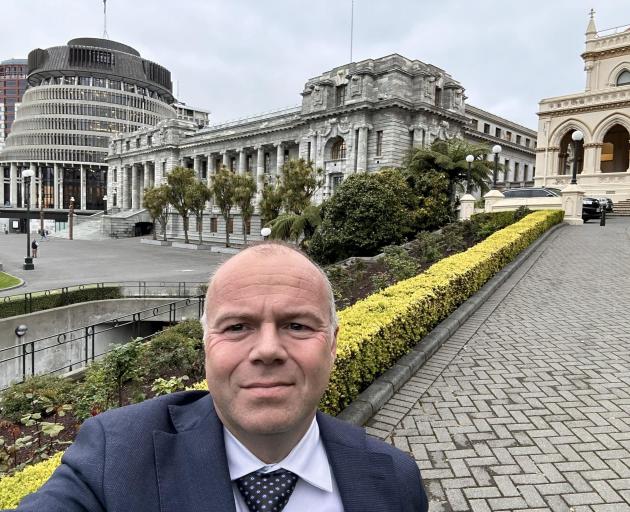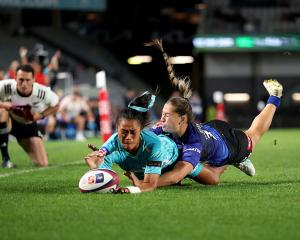
Mr Stephenson is Act’s whip, and behind the scenes he has been dealing with Mr Brownlee on two issues — an alleged insult directed at Act MP Karen Chhour by a Te Pāti Māori MP, and an objection by two members of the social services and community select committee to Act MP Laura Trask being appointed to chair a sub-committee to hear submissions on the Oranga Tamariki (Repeal of Section 7AA) Amendment Bill.
The first should be straightforward: it is convention that if a member takes personal offence to a statement from another member that an apology (no matter how half-hearted or begrudgingly it is offered) be made. It has not been, due to intransigence on behalf of the offending party.

Act’s contention is that the MPs who objected to Ms Trask chairing the sub-committee — Te Pāti Māori MP Mariameno Kapa-Kingi and Green MP Kahurangi Carter — did so because most of the submitters would be Māori and Ms Trask is not Māori.
Mr Stephenson wrote to the Speaker seeking to raise a question of privilege but was rebuffed.
Coincidentally, Mr Brownlee had decided this week to crack down on parties displaying logos or crests in the House, following objections to a laptop carrying the Te Pāti Māori logo on it being used in Parliament.
The logo ban is a long-standing rule, but Mr Brownlee has now extended it to include the Act party lapel pins which all its MPs have worn in the House for some years, having been given an exemption by former speaker Trevor Mallard to do so.
As it turned out, Mr Brownlee really meant it.
Wednesday’s Question Time began with a failed attempt by Act leader David Seymour to table the correspondence between Mr Brownlee and Mr Stephenson over "Trask-gate", and Mr Speaker was quietly simmering by the time Mr Stephenson got ready to stand up to ask Question 2, a patsy to his leader about Pharmac.
Mr Brownlee reminded members of the logo ban, and having done so pulled Mr Stephenson up before he got past "Thank you, Mr Speaker", to demand all logos — such as the pin Mr Stephenson was wearing — were removed.
Mr Stephenson, in vain, pointed out the Mallard ruling, to be told bluntly: "That's good. I've made a ruling, a new one, yesterday — nothing. So if you want to deliver your question to the House, remove the pin."
An exasperated Mr Seymour then tried to relitigate the matter through a point of order, to be told unsympathetically that "look, if the member thinks the wearing of his pin is more important than the delivery of his question, that's his choice, but it's the way things are going to be".
At which point Mr Stephenson surrendered, took off his pin, and tried again to ask his very important question about Pharmac, only for Mr Brownlee to pull the pin on him doing so as other Act MPs had not followed suit.
With Act not having any questions scheduled on Thursday the pin was — mostly — back in the grenade on this one for a few days, but Labour leader Chris Hipkins was quite correct to note that it was extraordinary that a governing party should be so openly brawling with the Speaker.
That would be because Mr Brownlee, mostly, is in the right here. The lapel-pin exemption was a poor decision as, despite Mr Mallard’s view that the pins were inconspicuous, they were plainly visible on television, and the select committee’s affairs are its own business.
Amusing as all this is to spectators, the sooner all parties sit down and sort this out the better.
Acting locally
As noted last week, Green co-leader Chloe Swarbrick was recently in Dunedin. And if you don’t want to take my word for it, check out her speech to the Greens AGM last weekend, a considerable chunk of which was about Dunedin — specifically climate-change mitigation in St Kilda and more generally Dunedin rental properties.
Southern Say hasn’t been to every political party conference ever held, but would be prepared to wager no other party leader has given such a Dunedin-centric speech at a party conference, including ones held here.












